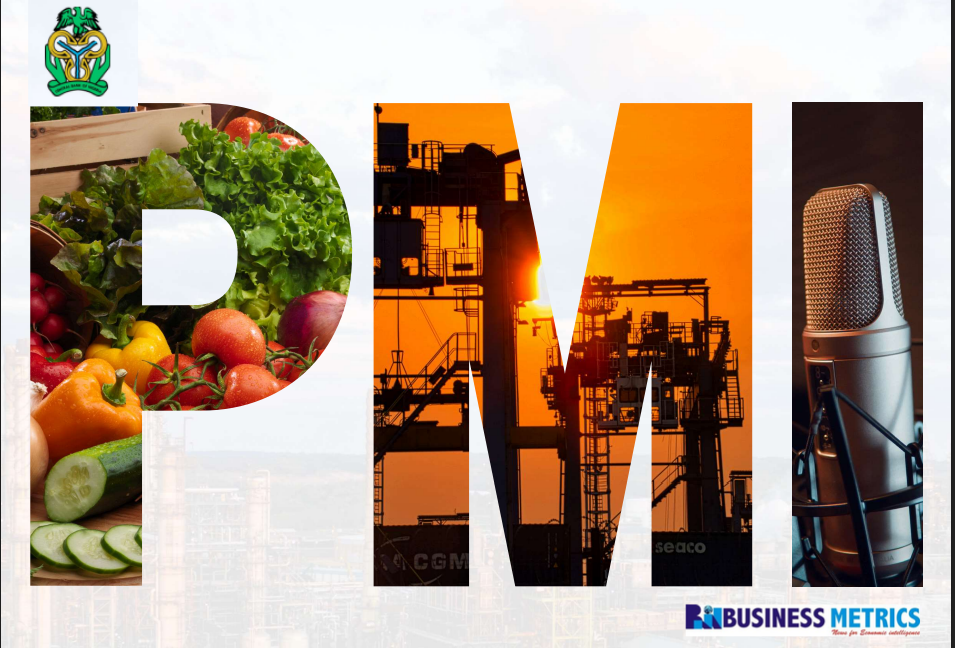MARKETS AND ECONOMY
Nigeria’s Private Sector Momentum Slows in June amid Signs of Economic Recovery
Published
8 months agoon

Nigeria’s economic activity continued to expand in June 2025, buoyed by robust performance in agriculture and services, although private sector growth showed signs of fatigue, according to data from the Central Bank of Nigeria (CBN) and Stanbic IBTC Bank.
The CBN’s Composite Purchasing Managers’ Index (PMI) for June indicated economic expansion for the sixth consecutive month, with 25 out of 36 subsectors surveyed reporting growth.
Read Also:
The industry sector posted a PMI reading of 51.4, signalling modest expansion, while the services sector also grew at 51.3 index points, with 11 of its 14 subsectors recording increased activity.
Agriculture emerged as the standout performer, notching a PMI reading of 55.2 to mark its eleventh straight month of expansion.
The report further show that all five agricultural subsectors reported growth, underscoring the sector’s central role in the country’s economic resilience.
However, it also recorded the widest input-output price gap at 9.8 points, indicating lingering inflationary pressures. The services sector recorded the smallest gap at 4.4 points.
Overall, the CBN data paints a picture of sustained, broad-based economic recovery in the second quarter of 2025, particularly outside the manufacturing space.
In contrast, the Stanbic IBTC Bank’s June PMI reading for the private sector highlighted a slowdown, with the index falling to 51.6 from 52.7 in May, its lowest level in seven months.
Although still in expansionary territory, the report flagged softening momentum across output, new orders, and purchasing activity.
Manufacturing emerged as a major drag on performance, slipping into contraction, while gains in agriculture and services were more muted.
New business growth weakened to its lowest in five months, mirroring subdued demand conditions, while inventory accumulation also slowed sharply, and employment remained largely flat, indicating businesses are adopting a more cautious stance.
Nonetheless, signs of underlying economic resilience remain, given that inflation continued to ease, with headline consumer prices falling to 22.97% in May, marking the second month of moderation.
Business confidence hit its highest point since August 2022, with firms signalling intentions to invest in infrastructure and scale operations.
Despite structural headwinds such as supply-chain bottlenecks, power shortages, and delayed payments, analysts believe the combination of ongoing reforms and improved macroeconomic stability may pave the way for stronger growth over the medium term.
Sectoral performance is expected to remain uneven in the near term, with manufacturing and construction facing continued challenges.
However, agriculture, consumer goods, and technology-linked sectors are likely to lead growth, provided there is policy continuity, enhanced credit access, and improvements in critical infrastructure such as electricity.
As Nigeria heads into the second half of 2025, the data presents a mixed but cautiously optimistic outlook: growth is holding, but the pace needs reinforcement through targeted policy interventions.
Share this:
- Click to share on X (Opens in new window) X
- Click to share on Facebook (Opens in new window) Facebook
- Click to share on WhatsApp (Opens in new window) WhatsApp
- Click to share on Pocket (Opens in new window) Pocket
- Click to share on Telegram (Opens in new window) Telegram
- Click to email a link to a friend (Opens in new window) Email
- Click to share on LinkedIn (Opens in new window) LinkedIn
You may like


Nigerian Banks Set New Target to Respond to Frauds


NCC, CBN Introduce 30-Second Refund Rule for Failed Airtime and Data Purchases


Banks’ N1.96Trn Black Hole: Who Took the Loans, Who Defaulted, and Why the Real Economy Suffers


How Policy Missteps Weigh Down Nigeria’s Fragile Banking Giants


Nigeria at 65: A Nation Still Waiting for a Banking Revolution


Nigeria’s Banking Woes: How One South African Bank Outvalues an Entire Industry












